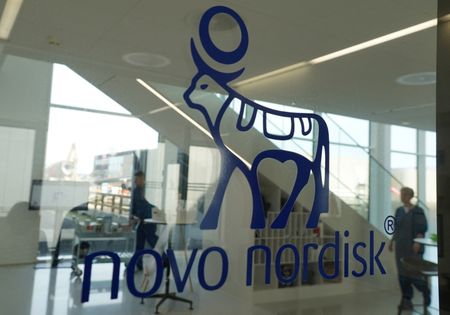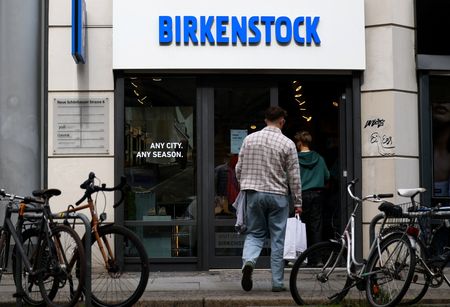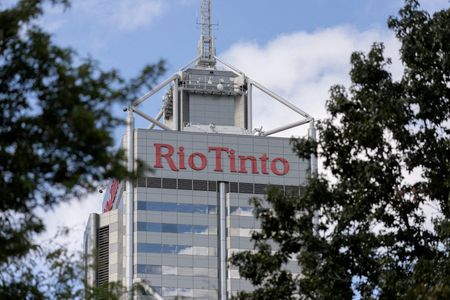By Maggie Fick and Lucy Raitano
LONDON (Reuters) -Novo Nordisk shares have fallen 25% so far in March and are on track for their biggest monthly drop since July 2002, as investor worries intensify that the obesity drug market pioneer has lost its edge over U.S. rival Eli Lilly.
The Danish drugmaker’s launch of weight-loss injection Wegovy propelled it to become Europe’s most valuable company by market capitalization in September 2023, a mantle it lost on Monday to German software company SAP, though French luxury group LVMH had also earlier briefly unseated it.
Novo came under pressure last year to prove it could keep its advantage in the lucrative obesity market after U.S. rival Lilly launched its own injection Zepbound, which led in clinical trials to greater weight loss than Wegovy.
That has not happened, say investors and analysts observing rapidly worsening market sentiment toward Novo, despite the fact that Wegovy sales more than doubled in the fourth quarter of last year.
Since last summer, Novo has lost half its market value, and shares are down 23% so far this year. Shares in Lilly are up 6% this year.
“Sentiment for the stock has become quite negative, as it is widely accepted now that Novo’s Wegovy is significantly inferior to Lilly’s Zepbound,” said Alexander Jenke, portfolio manager at German investment firm Medical Strategy. His fund does not hold Novo shares. “I don’t see significant upside from the stock through the end of 2025.”
Investors and analysts see more cause for concern in the closely-watched weekly U.S. prescription data for Wegovy and Zepbound.
U.S. doctors for most of 2024 prescribed Wegovy or Zepbound based on what was available given supply constraints.
At quarterly earnings in February, Novo said that it had increased supplies of Wegovy to the U.S. market and said its fiscal guidance for the year reflected this.
Total weekly Wegovy prescriptions have instead stayed flat for more than a month, according to IQVIA data published by analysts. Zepbound prescriptions outstripped Wegovy by 80,000 per week in the week ending March 14, data showed.
Lukas Leu, fund manager at healthcare-focused Bellevue Asset Management in Switzerland, which holds Novo shares, said he and other investors are “impatient” that Wegovy scripts have not picked up.
This comes on the heels of data from two trials of Novo’s next-generation obesity drug CagriSema, released in December and early March, that also fell below expectations.
“Terrible follow up in Q1 2025 on a disappointing end to 2024,” Nordnet analyst Per Hansen told Reuters on Thursday.
Worsening the pain, said Barclays analyst Emily Field, is the U.S. tariffs threat overhanging the pharma industry.
Pressure on Novo is particularly high because it produces its active ingredient for Wegovy and diabetes drug Ozempic in Denmark, said Field.
Novo Chairman Helge Lund referenced share price concerns at the annual general meeting on Thursday. The company’s long-term strategy is clear, he said. “We remain committed to executing that strategy while communicating transparently about our progress.”
(Reporting by Maggie Fick and Ludy RaitanoAdditional reporting by Stine Jacobsen in Copenhagen and Greta Rosen Fondahn in Gdansk; editing by David Evans)










